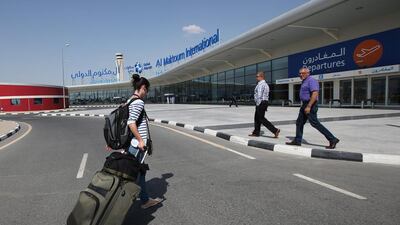Sheikh Mohammed bin Rashid, Vice President of the UAE and Ruler of Dubai, unveiled plans this week for a Dh30 billion market to be built close to the city’s new Al Maktoum International Airport. Dubai Wholesale City, which will link three continents, will be home to 15,000 traders from Malaysia to Germany. The facility will also include an international exhibition facility.
This mega-project is the embodiment of Dubai’s diversified economic portfolio and highlights a smart way that the UAE’s location can be leveraged for economic gain. The UAE is at the crossroads of three continents and historically has had extensive trade routes in and out of the Arabian Gulf. Dubai Wholesale City, when it is completed, will continue this tradition as a nexus of global trade.
With a continued slump in crude oil prices, the push for economic diversification has taken on greater urgency. In addition to Dubai’s Wholesale City project, which will help develop a new sector around the city’s second airport, Abu Dhabi is targeting 8 per cent non-oil growth over the next 20 years.
As The National reported, Abu Dhabi will continue to develop the education, health care and logistics sector to hit non-oil growth targets.
One promising sector is in financial technology or fintech. Under an initiative announced by Ahmed Al Sayegh, the chairman of the Abu Dhabi Global Market, the emirate aims to become the regional leader in Fintech by enhancing opportunities in the Abu Dhabi financial system, anchoring financial technology in local banks and streamlining the UAE’s markets.
Oil prices may stay low for longer than analysts originally expected. Thanks to good planning, the UAE’s economy has been on a path of diversification for quite some time. Now the country can build on the diversified sectors already in place and expand growth opportunities in the realm of the knowledge economy and exploit its ideal geographical position.

